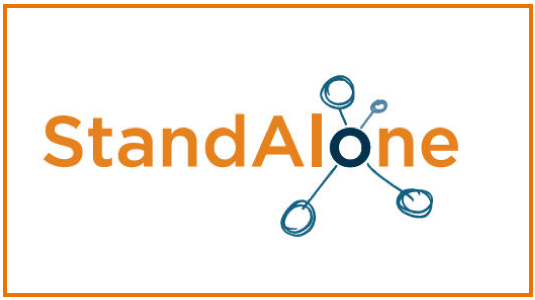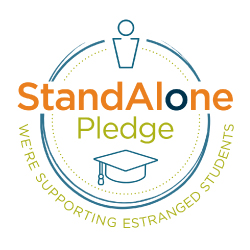SFC news published since 2018. See SFC archived content for earlier news articles.
Are estranged students visible at your institution? Is there support for them? Do they know about it and do they access it?

Estranged students are young people studying without the support and approval of a family network. Young people in this position have removed themselves from a dysfunctional situation and often have no contact at all with their family .
Stand Alone is a charity that supports people who are estranged from their family or children. Research we have undertaken shows that a breakdown of relationships with parents and/or siblings is not a rare thing in our society today, and 1 in 5 families across all communities and backgrounds are affected by estrangement.
 Key causes of a breakdown of family relationships can include:
Key causes of a breakdown of family relationships can include:
- Emotional abuse.
- Mismatched expectations about family roles and relationships.
- A clash of personality or values.
Young people may also be distanced or removed from their family for ‘coming out’ as LGBT+ or for rejecting cultural norms, such as forced marriage or honour-based expectations.
Estranged young people are in a different position to care-experienced young people / care leavers who have been looked after by their local authority. Despite having similar family backgrounds, evidence shows that the vast majority of young people who become estranged from their family do so without local authority or social service involvement.
For some of these students, it is because they are too old. For others, they may never have told anybody about their difficult family situation for fear of judgement, or there is no entitlement to be looked after, which is true of those young people who are disowned for coming out as LGBT+ or rejecting cultural values of their family of origin.
There are a significant number of students in higher education who are living independently, without parental support, as a result of family estrangement. Some will be estranged before applying, others become estranged during the course of their study. They can struggle to various degrees with financial hardship, homelessness, lack of emotional support, mental health, isolation and stigma. Consequently, the drop-out rate of estranged students in HE is significantly higher than average.
If estranged young people are not supported within their institution, they are likely to struggle along in isolation. A proportion may not make it through higher education without additional encouragement and material and financial initiatives that replicate the support normally provided by parents.
This means that a group of young people, who lack family support, but who do not have a corporate parent, may not reach their full potential. Thus, Scottish society may lose the contributions of these young people, and their rights to a fair chance in life may be fundamentally impacted.
“I don’t have a “safety net” if something goes wrong with studies/work and I can never really just take a break. I think that makes me more anxious about the future and generally more stress-prone.”
– Estranged student from Sheffield Hallam University
Raising the awareness of barriers to educational progression of care leavers and care-experienced young people has led to the corporate parenting responsibility of education institutions.
However, estranged young people don’t have a corporate parent and are largely hidden and invisible amongst their peers. This is mainly because as a group they do not fall into any existing widening participation categories – ‘lack of family support or contact’ is not a measure of disadvantage.
But things are starting to happen for estranged students in Scotland.
The Scottish Funding Council (SFC) now recognises estranged students as a cohort within its ‘at risk groups’ policy and is looking into how to support access to and success at higher education of this cohort through outcome agreements.
To evidence intake of estranged students, the Student Awards Agency for Scotland (SAAS) is also working on improved data collection on estranged young people on application.
“Support has developed an awful lot over the past 12 months – I now feel less invisible and more valued. There is a designated member of staff who helps students living with family estrangement.”
– Estranged student, Salford University
To-date 4 Scottish HEIs have also taken the Stand Alone Pledge: University of Strathclyde, Glasgow University, University of the West of Scotland, and West College Scotland.
 The Stand Alone Pledge commits HEIs to develop better support for estranged students by improving their support mechanisms in four key areas – finance, accommodation, mental health and wellbeing, and outreach and transition.
The Stand Alone Pledge commits HEIs to develop better support for estranged students by improving their support mechanisms in four key areas – finance, accommodation, mental health and wellbeing, and outreach and transition.
Stand Alone is here to help with training and advice. For more information go to http://www.thestandalonepledge.org.uk/about, read our research reports or come to one of our conferences to learn more and share best practice with colleagues (coming up next: 9 July at Glasgow University).
You can also follow us on Twitter @StandAloneHE and @UKStandAlone

